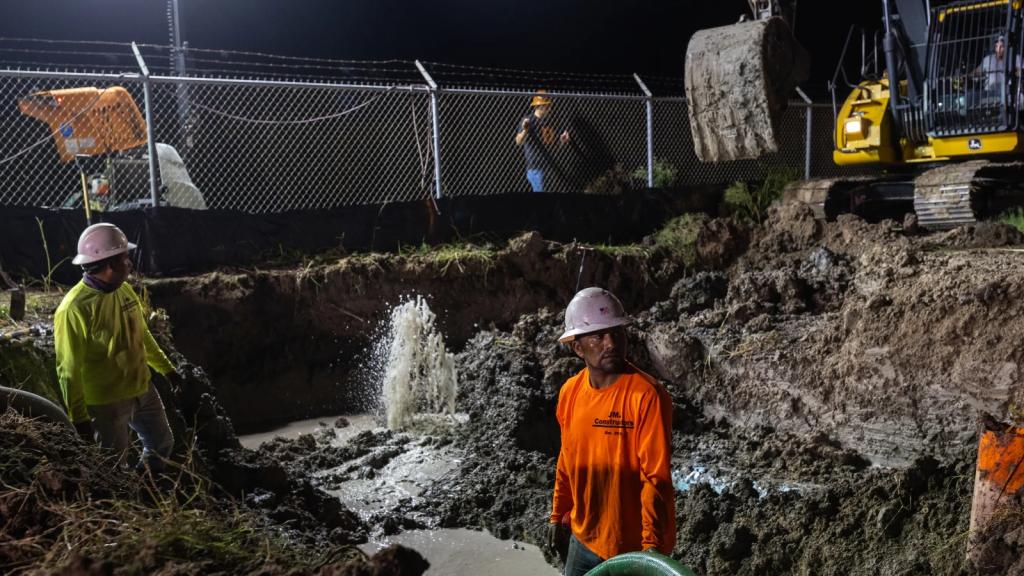This story is part of Record High, a Grist series examining extreme heat and its impact on how — and where — we live.
President Joe Biden was unequivocal when asked, during an interview with the Weather Channel last week, if he was “prepared to declare a national emergency with respect to climate change.”
“I’ve already done that,” he answered without hesitation.
But the president has not, in fact, declared a national emergency for climate change, despite claiming that he’s “practically” done so. Activists, several Democratic lawmakers, and climate scientists have in recent weeks renewed calls for Biden to take that very step, an act that would unlock sweeping executive authorities to halt fossil fuel production and ramp up manufacturing of clean energy technologies.
Though such calls have been made since the day Biden took office, the hottest June and July in history has prompted frustration bordering on outrage with his administration’s response to deadly heat and the climate change driving it. Environmental advocates say that although the president acknowledges the climate crisis in his rhetoric, his administration continues to expand fossil fuel production.
“As long as we are producing and exporting these fossil fuels, the planet will continue to cook,” Jean Su, a senior attorney and energy justice director at the Center for Biological Diversity, told Grist.
Su and other environmental lawyers say declaring a climate emergency would be fairly straightforward. Under the National Emergencies Act, Biden could issue a declaration that would activate provisions in existing laws to take drastic measures to address climate change. The president could, for example, halt crude oil exports by reinstating a ban that Congress lifted in 2015. He also could suspend offshore oil and gas drilling in over 11 million acres of federal waters, owing to a clause in those leases that allows the president to suspend operation during a national emergency.
Some energy analysts warn that a sudden curtailing of fossil fuel exports and production could raise gasoline prices and deepen a European energy crisis sparked by Russia’s invasion of Ukraine. Environmental advocates counter that despite record-high domestic oil production, gas prices remain stubbornly high. They point to other reasons for volatile oil markets, including oil-producing countries choosing to cut supplies to raise oil prices, and say a climate emergency declaration could help fulfill energy needs by accelerating development of renewable power generation.
For example, once a climate emergency is declared, Biden could divert billions of dollars from the military toward constructing renewable energy projects. Under the Defense Production Act, a law invoked by the Trump administration to boost the supply of Covid-19 medical supplies, Biden could order businesses to manufacture more clean energy and transportation technologies. He also could extend loan guarantees to industries crucial to decarbonizing the electrical grid and transportation sector, further boosting the supply of renewable power.
Biden would, of course, face considerable blowback. Dan Farber, an environmental law professor at UC Berkeley, told Grist that a climate emergency declaration could prompt legal challenges that might land before a conservative Supreme Court. He noted that in the last few years, the court has struck down broad measures taken by the Biden administration to respond to the Covid-19 pandemic, including a vaccination mandate for large employers and a moratorium on evictions.
“I think that makes it iffy whether the Supreme Court really would allow sweeping use of any of these emergency powers in a climate emergency,” Farber said.
Su noted that while litigation always is a potential response to any policy, the powers invoked by an emergency declaration would be easily defended in court. “We’re not looking at somersaults and breathing creative definitions into words. These are really straightforward statutory language questions,” Su said.
The Supreme Court has never overturned a presidential emergency declaration, but there are hurdles beyond that arena, including backlash from Congress, which might threaten the chances of passing future climate legislation. Voters might balk as well, making any declaration a potentially risky move as Biden seeks re-election next year.
But the biggest obstacle to a climate emergency declaration may be the Biden administration itself. Declaring an emergency — and invoking all its potential authorities — sits in direct opposition to its stance on fossil fuels, which so far has fostered the industry’s growth. It has in just the past year approved new oil drilling in Alaska, supported a booming liquified natural gas export industry along the Gulf Coast, and fast-tracked completion of the Mountain Valley methane pipeline in West Virginia.
“This administration claims to be climate champions, and yet they have constantly approved things like the Mountain Valley Pipeline,” said Roishetta Sibley Ozane, founder and director of the Vessel Project, a mutual aid and environmental justice organization in Louisiana. “If you’re going to be a climate champion, you can no longer be approving new fossil fuel infrastructure.”
Given these challenges, Biden might have an easier time — and provide more immediate relief for communities — by declaring an emergency for heat rather than climate change. He could do so under the Robert T. Stafford Disaster Relief and Emergency Assistance Act of 1988. The law authorizes the federal government to provide financial and other forms of assistance to states, tribes, territories, and cities when the president declares a natural disaster or emergency.
While the Stafford Act doesn’t explicitly name heat as a disaster covered under the law, Farber and Su say there’s nothing in the statute that prevents extreme heat from qualifying. Much like declaring a disaster for, say, a hurricane, doing so for heat could enable the Federal Emergency Management Agency, or FEMA, to provide relief funding for supplies like power generators and emergency responses like medical care or repairing heat-stressed power grids.
But the challenges with declaring heat as a disaster might be more administrative than legal. To receive assistance, cities, tribes, and states need to prove that an emergency exceeds their current funding and resource capacity. It can be difficult to tally up the costs of extreme heat, which is less likely to destroy property and more likely to take a toll on public health and productivity. As heat continues to strain electrical systems and send people to hospitals, however, those costs are only becoming more tangible.
Environmental activists say it’s a reminder that the crisis of extreme heat will only get worse until President Biden takes decisive action.
“We absolutely need emergency funding to deal with people dying on the streets right now,” Su said. “But we also need to deal with the root of the crisis, which is fossil fuels.”




